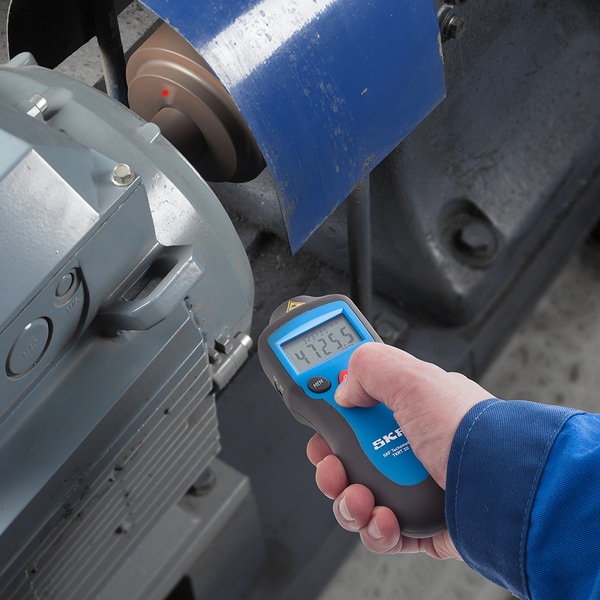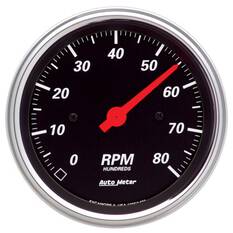Key Reasons Having a Tachometer Is Necessary for Keeping Engine Health And Wellness and Efficiency
This modest yet vital tool plays a critical role in the upkeep of an engine's wellness and efficiency. By providing real-time information on engine speed and RPM levels, a tachometer provides invaluable understandings that directly affect the performance and longevity of the engine. Let's check out the key reasons behind its crucial duty in maintaining engine wellness and effectiveness.
Preventing Engine Over-Revving

To protect the engine from prospective damages, it is crucial to execute measures that protect against over-revving, a practice that can lead to costly repairs and minimized engine life-span. Over-revving happens when the engine's rotational rate surpasses the maximum limit established by the producer, triggering undue stress on interior parts such as pistons, shutoffs, and attaching rods. This excessive strain can lead to mechanical failings, including bent shutoffs, damaged pistons, and even tragic engine failing.
A rev limiter is a tool that controls the optimum RPM (transformations per minute) of the engine by either reducing off gas circulation or stimulate to the engine when the pre-set limitation is gotten to. Normal maintenance checks to ensure the engine is in optimal condition can likewise assist in protecting against over-revving incidents and extending the engine's life-span.
Optimizing Gas Intake
Efficient gas usage plays an essential role in taking full advantage of the efficiency and sustainability of an engine. tachometer. Optimizing gas usage not just assists in reducing functional costs yet likewise minimizes the environmental influence of automobile exhausts. By using a tachometer to keep an eye on engine rate and readjust driving habits as necessary, motorists can attain far better gas performance
Maintaining a steady pace and avoiding unexpected velocities and decelerations can significantly enhance fuel economic climate. Additionally, correct gear selection based on the tachometer analyses makes certain that the engine operates within its optimal variety, causing much more efficient fuel combustion.
Consistently keeping track of the tachometer can likewise assist identify any kind of inefficiencies or mechanical problems that may be affecting gas consumption. For instance, an abrupt rise in gas usage without a corresponding change in driving practices could show a problem that calls for focus.
Monitoring Engine Wellness
Monitoring engine health is essential for making sure optimal performance and longevity of the automobile. By utilizing a tachometer to keep track of engine rate, chauffeurs can discover irregularities that might indicate possible issues with the engine. A tachometer supplies real-time data on engine transformations per minute (RPM), allowing chauffeurs to recognize any type of unusual spikes or decrease in RPM that could signify troubles such as misfires, worn-out elements, or engine overheating.

On a regular basis keeping an eye on engine wellness through using a next page tachometer makes it possible for motorists to deal with problems immediately before they intensify and cause considerable damage. Finding a decrease in RPM might suggest fuel delivery issues or a blocked air filter, while a sudden rise in RPM might aim to concerns with the transmission or exhaust system. By remaining vigilant and receptive to adjustments in engine performance, chauffeurs can stop expensive repair work and make sure the overall wellness and effectiveness of their vehicle.
Increasing Engine Life-span
Making certain the longevity of an engine needs persistent maintenance techniques and mindful monitoring of crucial performance indications. Extending an engine's life expectancy is important for minimizing general vehicle maintenance prices and staying clear of unforeseen breakdowns. A tachometer plays a substantial function in this aspect by giving real-time data on engine rate, permitting drivers and auto mechanics to make educated decisions to prevent extreme wear and tear.

Additionally, routine maintenance based upon tachometer analyses, such as timely oil changes and ignition system replacements, can considerably contribute to prolonging the engine's long life. Generally, integrating a tachometer into routine engine monitoring techniques is crucial for protecting the engine's health and wellness and efficiency over the long-term.
Conserving Cash on Repair Works
A tachometer helps in keeping track of the engine's RPM (revolutions per minute), enabling vehicle drivers to run within the suggested range. By remaining within these ideal RPM levels, excessive strain on the engine can be prevented, reducing the possibility of pricey repair work due to exhausting the engine.
Furthermore, by using the data from a tachometer to practice smooth velocity and deceleration, chauffeurs can lengthen the life-span of their car's components, eventually saving money on upkeep and substitutes. On the whole, the insights given by a tachometer empower drivers to make educated choices that can avoid unneeded damage on the engine, resulting in considerable cost savings over time.
Verdict
To conclude, a tachometer plays an important function in preserving Web Site engine wellness and effectiveness by preventing over-revving, maximizing fuel intake, keeping an eye on engine health and wellness, prolonging engine lifespan, and saving money on repair work. It is a necessary device for making sure that the engine operates within secure limitations and does at its ideal, inevitably adding to the longevity and total efficiency of the lorry.